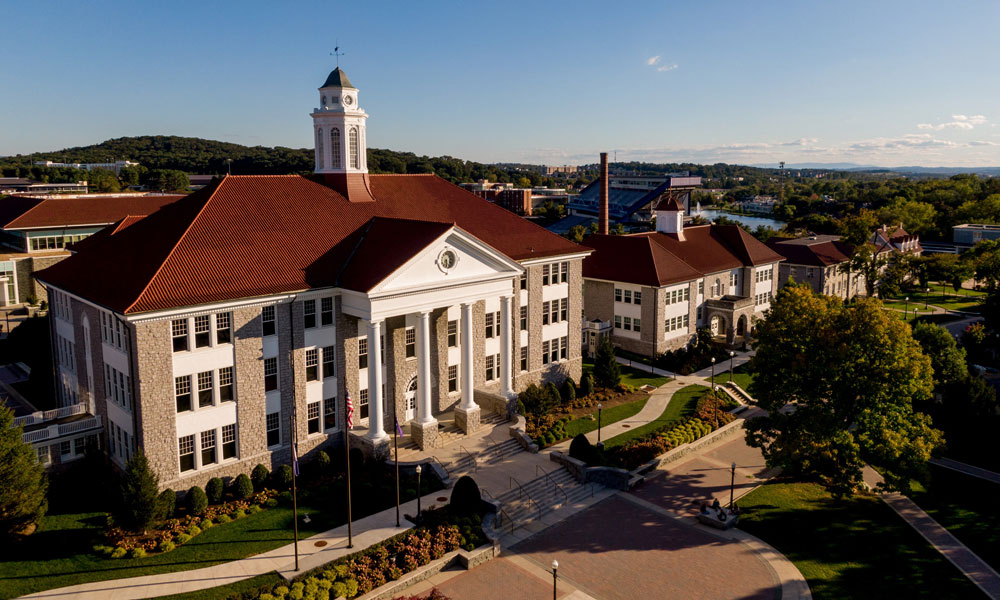Engineering Incorporates Digital Storytelling
Office of the Provost
By: Daniel Vieth
Traditionally, students have shared what they have learned through research papers, short presentations or posters. Unfortunately, these methods have not fully captured the experience and growth of students. Newer resources have recently changed the way in which student communicate their work providing far better techniques to communicate to teachers, future employers, and even themselves. Taking advantage of this opportunity, engineering capstone students have added a valuable digital content component to their final projects through a collaboration with Digital Communication Consulting (DigiComm) and their Media Fellows Program. With the help of Holly Warfield (‘16), a DigiComm media tutor, Dr. Brad Striebig’s ENGR 431 students are creating project websites with the digital storytelling platform Atavist.
In addition to one-on-one consultations for students creating digital content like websites, videos, or portfolios, DigiComm provides a Media Fellows Program where professors can apply to have a DigiComm tutor assist them in incorporating semester-long media projects. “There are a lot of places on campus where faculty are encouraged to develop digital assignments, so we try to find those faculty at the particular moment where they want to try something new, and we offer support for their students through that process,” explained Paige Normand, coordinator of DigiComm. “The idea of the media fellow is that they work closely with the faculty member to figure out how best to offer presentations, workshops, online resources, and tailored consultations for students to best facilitate their content creation.”
The four-semester engineering capstone is a great example of a robust project, which began last year. Students split into six different groups, each working with either a corporate or community partner on projects ranging from water and air filtration systems to fracking and other environmental issues. “As a department, we feel that the four-semester capstone experience we have here is really unique and a highlight of our program, but it’s hard for students to communicate these differences when they go to outside parties,” explained Striebig. “The concept [for this collaboration] is that students will have a way to demonstrate their skills and accomplishments, particularly to potential employers, graduates schools, or volunteer positions, in a way that is current with today’s trends in online communication.”
To accomplish this, the students are documenting their projects with the digital storytelling platform Atavist. More than just text, students can use images, videos, and interviews to better demonstrate where the projects started, what problems the students ran into, and most importantly how they overcame these. “These capstone students put so much work into their products, but all employers ever see is the final thing, never the process,” explained Warfield. “But it’s really important for employers to know how the students work through problems, especially as engineers, so I think digital storytelling is a really great way to show employers not only what they can do, but how they can do it.”
Having the students create web content also gives them greater digital literacy skills they may not have learned in their engineering classes. “One of the key goals is to give our students access to another discipline’s expertise so that they can develop skills in modern communications,” Striebig added. “Students need to be able to communicate their work using techniques that are really current. We’re trying to bring that process up-to-date.” With many of the students likely starting their job searches as early as the spring semester, it’s ideal to have an online presence before beginning that search..
“It’s been great having the media assistants helping us, because that’s not our usual area of expertise,” Striebig continued. “The synergy that’s generated by the generosity of the media partners, and them being able to help facilitate this, is essential, especially in terms of the time-scale in which we can adopt this project.” Striebig hopes to continue the collaboration with DigiComm with his class next year, refining the project to make it better and faster. “This is probably the first time an engineering class has done something like this, and I think employers are going to respond in a way that’s beneficial,” Warfield added. “These projects will show employers what the students can really do, and make them stand out.”
